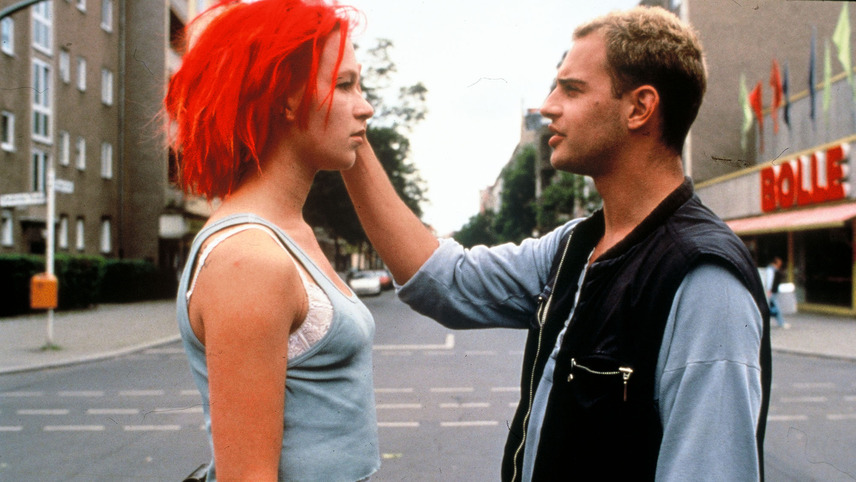Team Experience is looking back on past Sundance winners since we aren't attending this year. Here's Manuel on a late 90s German flick...
Tom Tykwer’s Run Lola Run (Lola rennt) won the 1999 Audience Award (World Cinema) at Sundance in 1999, an early accolade that would make it one of the most critically acclaimed foreign films of the year, a notion more than cemented close to a year later, when it would win the Independent Spirit Award for Best Foreign Film, a BAFTA nomination and seven aptly titled Lola (German Film) Awards. In case you’re wondering, Germany didn’t submit Tykwer’s film as its Foreign Language Oscar entry*—they went instead with the lesbian Nazi film Aimée & Jaguar, which failed to make the cut with the Academy who eventually bestowed the prize on Pedro Almodóvar’s All About My Mother. [*Edit: Actually as Harmodio points out in the comments, the film was submitted the year before, in 1998, though it was passed over. I was somehow okay with it missing a spot the year Pedro won, but that it didn't even make the cut the year Life is Beautiful won? Well... that's just depressing.]
I hadn’t revisited it since I first caught way back in college and all I could remember was its propulsive storytelling and near-frantic filmmaking. And really, on second viewing, that remains the film’s most distinctive feature...

Run Lola Run centers on Lola (Franka Potente) a young woman whose moped gets stolen, a small incident that derails her small-time criminal boyfriend Manni (Moritz Bleibtreu) from delivering 100,000 marks to his boss. With only twenty minutes until Manni has to drop off the money, Lola has to find a way to come up with a plan. What the film offers is three potential outcomes, following one at a time until Lola successfully manages to stave off a bloody end and assures herself the possibility of a happy ending. The film is an exercise in pulsating tension, teasing out an adrenaline-pumping vision of the butterfly effect: in brief moments when Lola’s narrative affects her interaction with a random passerby we see the newly potential future ahead of them.
It’s the type of flashy filmmaking that lives and dies on its editing, and boy does first-time editor Mathilde Bonnefoy deliver (you may not know this but she edited last year’s documentary feature winner Citizenfour). Looking back at it, Tykwer’s film almost feels of its time, sitting pretty alongside movies like Fight Club, The Matrix, Requiem for a Dream and Snatch, all released within months of one another, whose kinetic filmic energy all but propel the narratives they help sculpt.

If nothing else, the film should remind us that Hollywood never quite knew what to do with Potente who is so very good in this demanding, if limited role, though maybe her role in the upcoming The Conjuring 2 will remedy this?